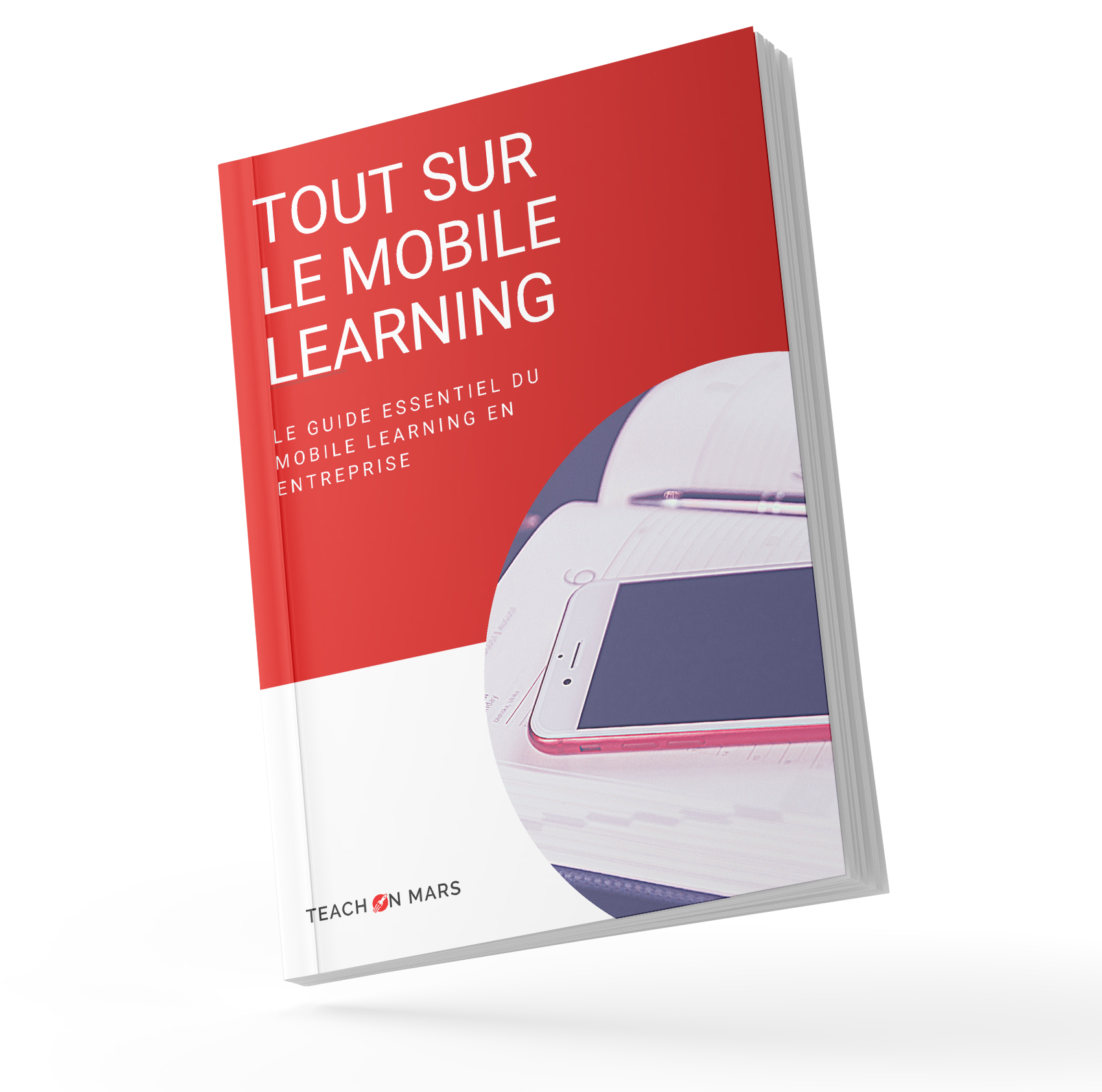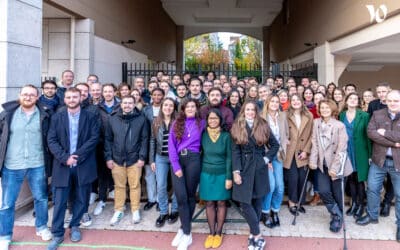How AI will impact the future development of Teach on Mars ?
We take “AI” very seriously at Teach on Mars. For us, it’s way more than just a buzzword or a nod to fashion, because we can see how it will transform and enhance everything we do. It will usher in capacity on a whole new scale to facilitate the creation of the right learning path for learners or to assist trainers and instructional designers in the creation of relevant, engaging learning content. We think that over the next 3 to 5 years it has the potential to bring huge value to the market. That said, it’s important to keep things in perspective and not overstate what machines are really capable of in the field of learning.
Personally, as an IT engineer, I don’t like the term “AI”, because a computer is anything but intelligent! We don’t even understand what human intelligence is, so talk of “artificial intelligence” – even today – is premature. I prefer the notion of “machine learning algorithms”, which refers to the real, objective ability of the computer to analyse huge sets of data, recognise patterns, apply rules and classify.
Where the game has changed in today’s connected, internet-enabled world is in the incredible quantities of data that we accumulate in our databases. Thanks to our hundreds of thousands of users, we at Teach on Mars generate literally millions of data items offering insight into how people learn, where they fail or succeed, which learning formats they like and which types of learning content perform best.
To leverage this, we have created a dedicated team at Teach on Mars code-named Curiosity (after the rover sent to Mars by NASA in 2012). This team’s mission is to build algorithms that analyse all this precious data and help develop mass learning path personalisation capacity which can be offered cost-effectively to our customers. To increase our research capacity, we have also set up a 3-year research programme with INRIA in Sophia-Antipolis (French National AI Research Institute), which will involve some of Europe’s leading AI specialists.
What will change in mobile learning?
These new smart algorithms will help at every stage of the learning process. Firstly, they will help the machine to understand your learning needs through natural language. Imagine being able to simply talk to your smartphone, or converse with a chatbot, in a fluid, intuitive dialogue about what you need to do, your projects and your goals. And imagine the machine being able to understand and translate your inputs into a set of competencies that you need to improve.
Next, an algorithm will be able to build and prescribe a personalised learning programme based on your current competency level, your learning preferences and the time you have available to learn. This programme will typically include a range of different learning opportunities, combining digital activities with, for example, contact with peers or experts to facilitate social learning.
The machine will also be capable of automatically indexing huge corpora of documents, videos, podcasts and other content to find the right learning resources for you. It will even be able to create custom activities just for you!
The result will be learning strategies that are better matched to learners’ (and organisations’) needs and objectives. The organisation’s learning ecosystem will work more efficiently, at a lower cost of ownership.
To build the learner’s confidence in the system, it will be critically important to maintain the highest content quality standards and ensure the relevance of all learning propositions. So in the mid-term at least, we feel the machine will need human input and supervision to validate any learning strategies and content it “calculates” and builds.
We also believe that there is a genuine need to educate learners on AI itself, to help them really understand what it actually is and how it is likely to impact not just their learning and development, but also their lives. Everyone’s going to need to be AI-ready for the decades ahead!
Does Teach on Mars plan to have AI creating content and activities?
Absolutely. We’ve set up a research programme with INRIA and the WIMMICS laboratory to work on precisely this challenge. In terms of new capabilities and functionalities for the Teach on Mars solution, this could mean:
- A learning chatbot, that asks you questions and uses your responses, along with analysis of your needs and learning preferences, to help you craft your own personalised, learn anytime, anywhere strategy.
- Automatic learning game generation: an algorithm that will be able to generate games on an ad hoc bais by crawling through subject-matter documents. Raw content generated this way will still require review and validation by a human trainer, but the potential time savings are massive.
- Personalised skill certification challenges: targeted and contextual quiz generation for smart upskilling based on individual learners’ actual competency levels.
- Smart recommandations: daily pushes to the Wall in the Teach on Mars app of learning activity recommandations to optimise each learner’s “time to competency”.
While the possibilities are both exciting and endless, I reiterate that we must keep our expectations in proportion. At this stage, we have to view these functionalities as “augmented teaching capabilities” that in no way replace the capacity of a real, human coach or instructional designer to build a genuinely smart, engaging and personalised learning path and – crucially – motivate learners to follow it and get maximum benefit from it. Always remember that a machine has no personality, no sense of humour and no real knowledge of human psychology. The importance of emotional intelligence and empathy in any learning process means that engagement with the learner on a human level remains the preserve of the human trainer.
Do you think tomorrow that algorithms will be able to design content without the brain power of a learning designer?
Maybe one day … but not for a while yet!
As I said earlier, a computer is not really intelligent. In actual fact, it’s pretty stupid. It can’t yet really adapt to new situations, it can’t innovate. It can’t break the rules, or take risks. It has no real curiosity, or capacity to challenge itself. It has trouble recognising something new. What it can do, however, is apply rules that we program and process data much faster and more efficiently than we can.
In other words, computers and AI will “augment” our capacity to envision, design and create smart learning ecosystems, and our ability to teach and learn within them.
AI will empower and “operationalise” our learning strategies and lower the cost of learning programmes. But trainers will still have to be in the loop. Sure, their job will change, but it won’t disappear. Far from it – they will be freed up to focus on more value-added tasks. Tasks like designing complex, multimodal learning programmes, selecting the right learning technologies and creating the right environment for people to learn what they need, when they need it. Most importantly, they’ll have more time and more resources to devote to inspiring and nurturing the desire to learn.

Engineer. Passionate entrepreneur for 20 years in the world of digital training. Sailor. Father of three children. Curious by nature. Enjoys collective adventures. Co-founder and director of Teach on Mars (Sophia-Antipolis, 2013). Believes in the power of education: “More learning moments. Better future.”





